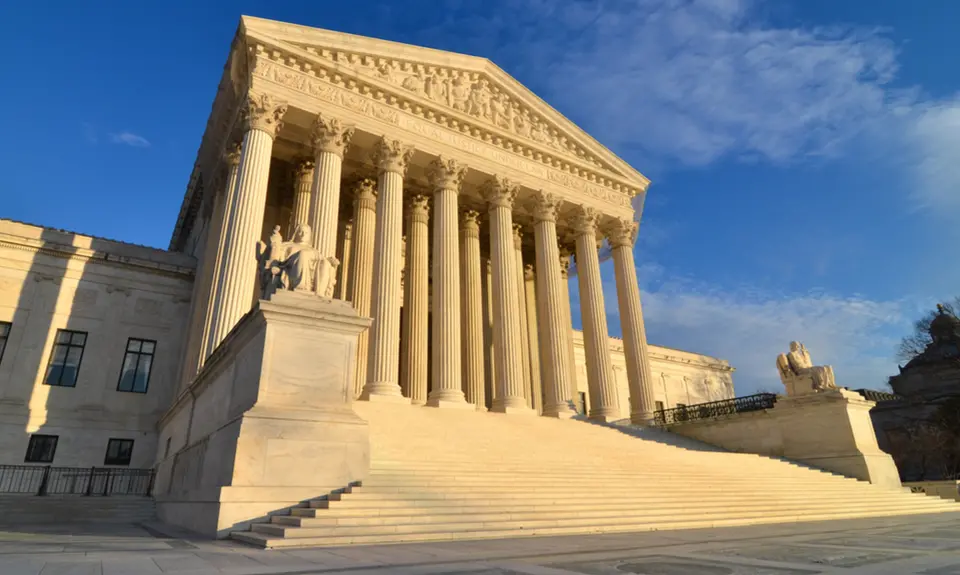On December 5, the Supreme Court heard argument in 303 Creative LLC v Elenis. Brought by the far right Alliance Defending Freddom (ADF), the case seeks to create an exemption from a state public accommodations law for a web designer who wants to advertise that she will not design web sites for same-sex weddings. As the argument showed, the case risks opening a wide gap in anti-discrimination protections based on First Amendment claims. This could apply not only to anti-LGBTQ+ discrimination but also concerning laws banning discrimination based on race, disability, and other factors.
What’s the Case About?
As part of a long-term strategy to undermine equal marriage and LGBTQ+ rights, ADF has brought a series of cases trying to undermine state legal protections for such rights. Several such lawsuits have concerned Colorado’s public accommodations law. Among other things, the law prohibits discrimination against same-sex couples by businesses selling products or services to people who want to get married.
303 is a small business that wants to design and sell websites relating to weddings. It claims that because of the owner’s religious beliefs, it does not want to offer such speech-related services to same sex couples. It therefore wants to advertise on its website that it will not sell its wedding website services to same sex couples and wants the state to agree not to enforce the anti-discrimination law against it.
A federal court of appeals rejected the claim but the Supreme Court decided to take the case. The Court agreed to hear whether the free speech clause of the First Amendment prohibits Colorado from enforcing the law against 303 or others who claim their free speech rights would be violated by forcing them to design and sell websites to same sex couples.
What happened at oral argument?
It became all too clear at oral argument that right-wing justices like Alito, Gorsuch and Thomas sympathized with 303. In repeated questions, they suggested that enforcing the anti-bias law would essentially compel speech from vendors like 303, forcing them to effectively endorse same sex weddings against their religious or other beliefs.
During the 2 ½ hour hearing, however, moderate justices’ questions made clear just how far and how damaging a ruling for 303 could go. Through a series of careful hypothetical questions, justices like Kagan and Sotomayor illustrated the problems with 303’s claims.
What were some key questions from Justice Kagan and other moderates?
Justice Kagan asked one series of questions that proved especially revealing. Assume, she began, that 303 designed and sold to “Mike and Mary” a wedding website that contained typical information about wedding dates, hotel accommodations, and gift registry. Now assume that “Mike and Mark” saw that website and wanted to purchase precisely the same thing for their wedding. Could 303 refuse?
According to 303’s lawyer, 303 could refuse, even though the content would be effectively identical. That made evident, Kagan pointed out, that the issue was clearly about “who and not what” – that is, 303 was discriminating based on who was seeking the service, not the content of what was being said.
Justice Sotomayor took the issue even further. Because of a vendor’s views against interracial weddings or weddings involving disabled people, she suggested, a vendor could refuse to sell the same website to an interracial or disabled couple who wanted to get married. The result would effectively turn the First Amendment into a license to discriminate based on race, disability, or other factors. Sotomayor pointed out that decades ago, the courts had rejected such arguments from white vendors who claimed a First Amendment right not to serve Blacks at lunch counters.
What happens now and what can we do?
As usual, the Court provided no clues at the end of the hearing about how it will decide the case. Unless leaks occur as in the Dobbs lawsuit, the justices will deliberate in secret and announce the results next year, likely in June. Even if the majority rules for 303, which seems likely, a key question is how far will the ruling go. Will it be limited to wedding-related speech services, or will it extend even further to weaponize the First Amendment as a sword against anti-discrimination protections?
We don’t know the answer. But in the meantime, it is crucial for all of us to encourage Congress and state legislatures to pass legislation that can protect against anti-LGBTQ+ and other discrimination. This includes the Respect for Marriage Act now being considered in the House. And it is crucial to encourage the prompt nomination and confirmation of fair-minded federal judges who wil help protect the rights of all.
